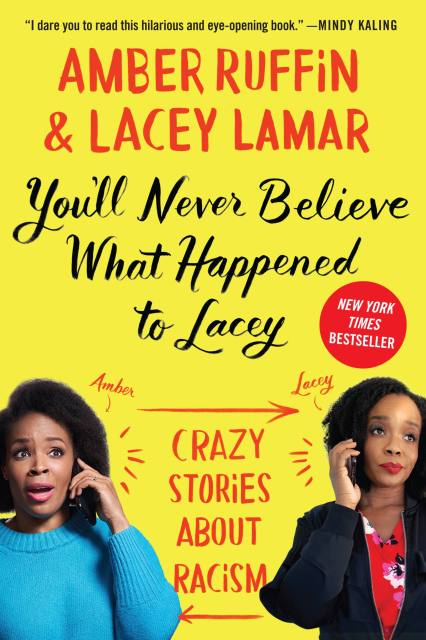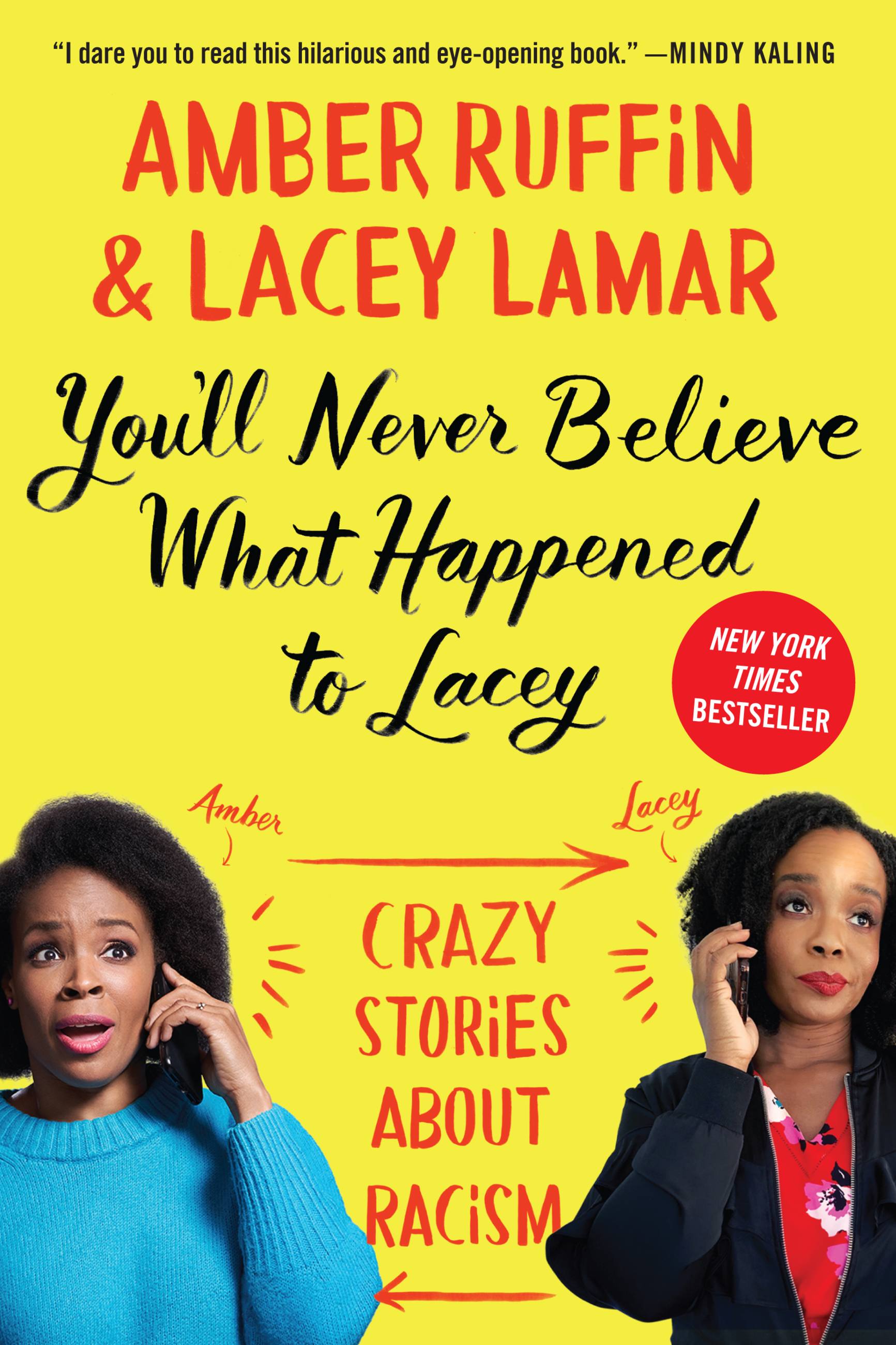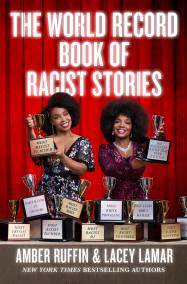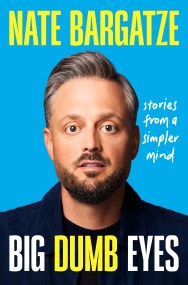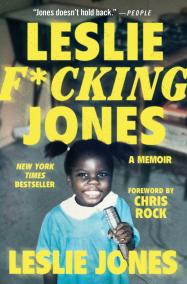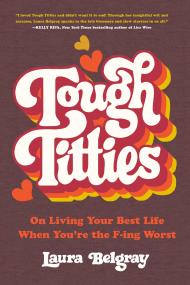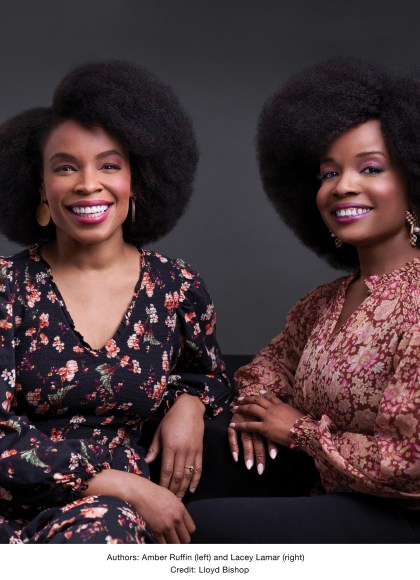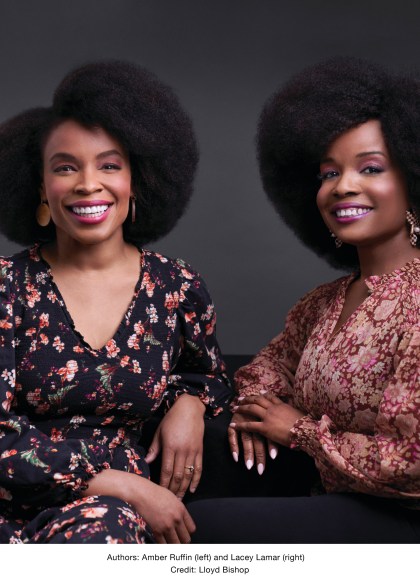By clicking “Accept,” you agree to the use of cookies and similar technologies on your device as set forth in our Cookie Policy and our Privacy Policy. Please note that certain cookies are essential for this website to function properly and do not require user consent to be deployed.
You’ll Never Believe What Happened to Lacey
Crazy Stories about Racism
Contributors
By Amber Ruffin
By Lacey Lamar
Formats and Prices
- On Sale
- Jan 12, 2021
- Page Count
- 240 pages
- Publisher
- Grand Central Publishing
- ISBN-13
- 9781538719343
Price
$11.99Price
$15.99 CADFormat
Format:
- ebook $11.99 $15.99 CAD
- Audiobook Download (Unabridged) $18.99
- Trade Paperback $16.99 $22.99 CAD
This item is a preorder. Your payment method will be charged immediately, and the product is expected to ship on or around January 12, 2021. This date is subject to change due to shipping delays beyond our control.
Buy from Other Retailers:
*A NEW YORK TIMES BESTSELLER AND INDIE NEXT PICK*
Writer and performer on Late Night with Seth Meyers Amber Ruffin writes with her sister Lacey Lamar with humor and heart to share absurd anecdotes about everyday experiences of racism.
Now a writer and performer on Late Night with Seth Meyers and host of The Amber Ruffin Show, Amber Ruffin lives in New York, where she is no one’s First Black Friend and everyone is, as she puts it, “stark raving normal.” But Amber’s sister Lacey? She’s still living in their home state of Nebraska, and trust us, you’ll never believe what happened to Lacey.
From racist donut shops to strangers putting their whole hand in her hair, from being mistaken for a prostitute to being mistaken for Harriet Tubman, Lacey is a lightning rod for hilariously ridiculous yet all-too-real anecdotes. She’s the perfect mix of polite, beautiful, petite, and Black that apparently makes people think “I can say whatever I want to this woman.” And now, Amber and Lacey share these entertainingly horrifying stories through their laugh-out-loud sisterly banter. Painfully relatable or shockingly eye-opening (depending on how often you have personally been followed by security at department stores), this book tackles modern-day racism with the perfect balance of levity and gravity.
Genre:
-
"I dare you to read this hilarious and eye-opening book and not become obsessed with Amber Ruffin."Mindy Kaling
-
"If you laugh half as hard as I did at the FIRST story in this book, let alone the rest of the book, you will have gotten your money's worth. The stories made me laugh and they made me sad. I know I'm not the only one to experience these kinds of moments but it helps to know that someone else-poor little Black Lacey taking on the lion's share of Nebraska's white ignorance all by her lonesome- experiences it too. From the mental gymnastics needed to call a black store dirty then drive out of state in order to avoid said dirt only to wind up shopping in a sty operating in a white neighborhood to having the gall to try and holluh at black women on a dating app when your profile pics have the confederate flag in them, Amber & Lacey point out how white folks are apparently doing the most in them parts."Retta, comedian andactress (Parks & Recreation, Good Girls)
-
"The message of this book is for ALL of us and no matter why YOU'RE here -- perhaps you're a fan of Amber Ruffin's comedy, or a Seth Meyers' fan, or a personal friend of Lacey's, or maybe you're just a person browsing for a book that will help you understand the Black experience in America and the other ones seem too much like school -- I urge you to BUY THIS BOOK. The stories are delivered with the humor and horror they deserve. You will laugh, you will be enraged, and if you are a white person, you will understand more than you did before about the truth of being Black in America -- even if you thought you understood a lot already because you read the hard school books."Busy Philipps, author, actor,white lady
-
"Amber and Lacey have the gift of making you comfortable enough to laugh at events that will also make you cringe. This book is an opportunity for black people to know you're not alone in how you've experienced the world. And for everyone this book is a chance to see a layer of this world that you might have been blind to. You'll leave both with a laugh and a little more knowledge."Roy Wood, Jr., correspondent, The Daily Show with Trevor Noah
-
"Amber and Lacey hysterically walk us through a minefield of empirically traumatizing events, finding a way to make us laugh while weeping for the state of our nation; a place where two brilliant women are made to feel that somehow it is they who are missing the mark."Natasha Lyonne, quadruplethreat, noted surrealist
-
"Both maddening and funny, an eye-opening look at how its daily targets cope with racism."Kirkus Reviews (starred review)
Newsletter Signup
By clicking ‘Sign Up,’ I acknowledge that I have read and agree to Hachette Book Group’s Privacy Policy and Terms of Use
